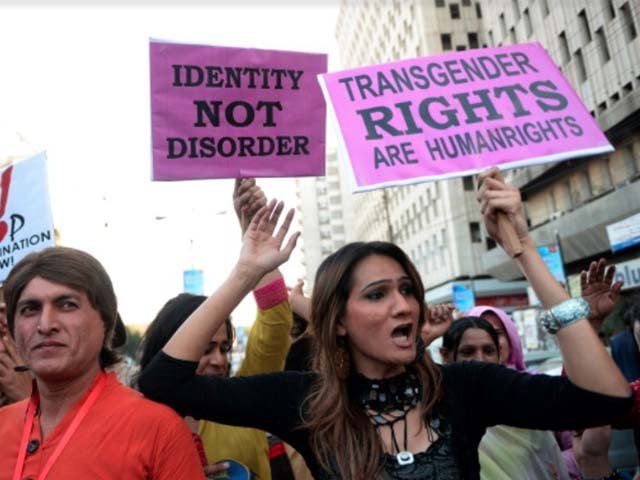By: Shireen Aslam
Transgender issues and human rights are critical areas of focus globally, and Pakistan is no exception. Despite a predominantly conservative society, Pakistan has made significant strides in acknowledging and protecting the rights of transgender individuals. However, numerous challenges persist, making the journey towards equality and acceptance a complex and ongoing struggle.
The transgender community, often referred to as the “khawaja sira” in South Asia, has a long and complicated history in Pakistan. Traditionally, transgender people, including hijras (eunuchs, intersex, and transgender women), have been part of South Asian culture for centuries, often revered and feared simultaneously. Despite this historical presence, they have faced significant marginalization, social exclusion, and discrimination.
In 2009, Pakistan’s Supreme Court made a landmark ruling that recognized transgender individuals as a distinct gender. This ruling instructed the government to issue national identity cards (NICs) to transgender persons, a significant step towards legal recognition. This decision was monumental because it acknowledged the existence and rights of the transgender community at a national level.
The most comprehensive legal advancement for transgender rights in Pakistan came with the enactment of the Transgender Persons (Protection of Rights) Act in 2018. This law aimed to ensure fundamental rights for transgender individuals, including the right to self-identify, prohibition of discrimination, right to inheritance, protection against harassment, and equal opportunities in education and employment.
Following the Supreme Court’s ruling and subsequent legislation, the National Database and Registration Authority (NADRA) began issuing gender-neutral identity cards, allowing individuals to choose from male, female, or a third gender option. This inclusion is crucial for legal recognition and access to services and rights that are often contingent on possessing an NIC.
Various provincial governments have initiated social welfare programs aimed at improving the socio-economic status of transgender individuals. For instance, the Punjab Social Protection Authority has launched vocational training programs and financial assistance schemes to empower the transgender community economically.
Access to healthcare remains a significant issue for transgender people in Pakistan. Recognizing this, the government has started including transgender health issues in its policy frameworks. There have been efforts to provide specialized healthcare services and training for healthcare professionals to sensitively address transgender health needs.
Despite these legal and policy advancements, the transgender community in Pakistan continues to face severe challenges. Deep-rooted social stigma and discrimination are pervasive. Transgender individuals often face rejection from their families, forcing many to live in isolated communities. They are frequently subjected to harassment, violence, and abuse in public spaces, workplaces, and even within their homes.
Due to societal prejudices, transgender persons have limited access to education and employment opportunities. Many are forced into begging, dancing at ceremonies, or sex work to survive. Although the 2018 Act prohibits discrimination in employment, enforcement remains weak, and social attitudes are slow to change.
Healthcare access is another critical issue. Transgender individuals often face discrimination and lack of understanding from healthcare providers, leading to inadequate medical care. Mental health issues, including depression and anxiety, are prevalent due to the social ostracization and violence faced by many in the community.
While the 2018 Act is progressive, its implementation has been inconsistent. There are significant gaps in enforcing anti-discrimination provisions and ensuring that transgender individuals can exercise their rights fully. Additionally, local laws and societal norms often conflict with federal laws, creating a complex legal landscape.
Civil society organizations and activists play a crucial role in advocating for transgender rights in Pakistan. Organizations like Blue Veins and the Gender Interactive Alliance (GIA) work tirelessly to raise awareness, provide support services, and lobby for better implementation of laws. Prominent transgender activists, such as Bindiya Rana and Almas Bobby, have been at the forefront of the struggle, using their voices and platforms to challenge societal norms and fight for equality. Their work has been instrumental in bringing transgender issues into the public discourse and pushing for legislative changes.
Pakistan’s efforts to improve transgender rights have drawn attention from international human rights organizations. The progress made, particularly with the 2018 Act, has been praised, but there is also recognition of the significant challenges that remain. International bodies continue to monitor the situation, offering recommendations and support to further the cause of transgender rights in Pakistan.
To build on the progress made and address ongoing challenges, several steps can be taken. Strengthening the implementation of laws is crucial, including training law enforcement and judicial officials, and establishing monitoring mechanisms to track progress. Increasing awareness and understanding of transgender issues through public education campaigns can help reduce stigma and discrimination. Expanding vocational training and employment opportunities for transgender individuals can help improve their socio-economic status and reduce reliance on informal sectors. Developing specialized healthcare services for transgender people and training healthcare providers can ensure better health outcomes. Establishing support networks and safe spaces for transgender individuals can provide much-needed social and emotional support.
Pakistan has made notable strides in recognizing and protecting the rights of transgender individuals through legal reforms and policy initiatives. However, significant challenges remain in the form of social stigma, discrimination, and inadequate implementation of laws. Continued efforts from the government, civil society, and the international community are essential to ensure that transgender individuals in Pakistan can live with dignity, equality, and full enjoyment of their human rights. The journey towards full acceptance and equality is long, but the steps taken so far provide a foundation for a more inclusive future.


